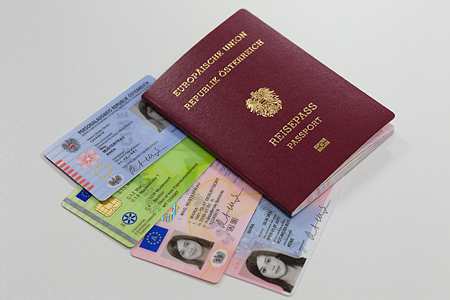Austrians Abroad Want Dual Citizenship at Last
There are growing calls among Austrians abroad for a change to Austria's strict laws regarding dual citizenship. Read about the citizens' initiative "Dual Citizenship for Austria" and the increasing support it is receiving from Austrians abroad, expats in Austria, and Austrian politicians.
 Acquiring dual citizenship in Austria is extremely difficult, but some people, including the founders of "Dual Citizenship for Austria," are working to change that. / Picture: © BMI Bundesministerium für Inneres / Alexander Tuma
Acquiring dual citizenship in Austria is extremely difficult, but some people, including the founders of "Dual Citizenship for Austria," are working to change that. / Picture: © BMI Bundesministerium für Inneres / Alexander Tuma
As a result of the Austrian Nationality Act, the Austrian government generally does not allow Austrians to have dual citizenship.
In Austria, a person who voluntarily acquires foreign citizenship automatically forfeits their Austrian citizenship.
To not forfeit Austrian citizenship, one must request permission in writing before acquiring foreign citizenship and be approved by a written decision.
The main exceptions to this rule are those who are born with two citizenships and, more recently, the descendants of those persecuted by the National Socialist regime in Austria.
Outside of these exceptions, being granted permission for dual citizenship is a rarity.
Austrians abroad, and even some Austrian politicians, are calling for a change to this law.
“Dual Citizenship for Austria” initiative
The citizens’ initiative “Doppelstaatsbürgerschaft für Österreich” (“Dual Citizenship for Austria”) has been working intensively to improve the situation surrounding dual citizenship.
Founded by Austrians abroad–Martin Wallner (Austin, Texas), Gabriel Foguel (New York), Michaela Krempl (Zurich), Stefan Fragner (Stockholm), and Andreas Eisl (Paris)– “Dual Citizenship for Austria” advocates modern adjustments to Austrian citizenship legislation.
The founders of the initiative believe that the citizenship law no longer does justice to the realities of Austrians living abroad. They argue that it creates cases of family and individual hardship and often leads to unequal treatment due to vague retention criteria.
The stories of the initiators, such as Gabriel Fogue’s “I’m an Austrian Who Can’t Live in Austria,” highlight the serious problems that arise due to Austria’s reluctance to allow for dual citizenship.
Fogue explains that he lives in New York and wants to raise his family in both Austria and the United States. However, he currently cannot do so because he cannot take citizenship in the United States without relinquishing his Austrian citizenship and cannot live in Austria for more than six months without losing his U.S. visa.
Martin Wallner, who lives in Austin, Texas, also points out the fact that because Austrians cannot become citizens of other countries without relinquishing their Austrian citizenship, they are often frustrated by not being able to participate in elections, such as the consequential 2020 U.S. presidential election.
Co-initiator Stefan Fragner states, “The citizens’ initiative is calling for a modernization of the citizenship law that puts the possibility of dual citizenship on the broadest and most transparent basis possible.”
The initiative provides targeted information on its website and social media platforms, holds regular video conferences on the subject with well-known experts, and circulates the latest news via a newsletter.
Growing support for dual citizenship
Dual Citizenship for Austria’s Facebook page now has over 2,500 members, but this initiative is not alone in its demands.
There is a broad consensus in expert circles about the need for reform, which the World Federation of Austrians Abroad also notices.
In addition, many foreigners living in Austria would like to have Austrian citizenship but do not want to relinquish the citizenship of their home country, which leads to many of the same problems described by the initiators of “Dual Citizenship for Austria.”
Some Austrian politicians have also noticed the need for change and have started showing support for the cause as well.
Notably, the Governor of Upper Austria Thomas Stelzer said in an interview that he believes there needs to be action on dual citizenship for Austrians abroad.
“Dual Citizenship for Austria” conducted a survey of the parties before the 2021 Upper Austrian elections and found that each of the parties, including the conservative ÖVP and the far-right FPÖ, expressed some degree of support for allowing more dual citizenships.
Martin Wallner notes that there seems to be a growing consensus among Austrian politicians on the topic.
While there is growing support for changing the law, no real steps have been taken to do so yet.
That is why co-initiator Michaela Krempl demands, “The growing consensus must now be used to hold talks at the parliamentary level and quickly adopt legal changes. What is needed are concrete measures instead of lip service!”
With a growing number of people sharing Krempl’s opinion, perhaps a change to the Austrian Nationality Act could come in the near future.
After all, Austria is one of the last countries in Europe where dual citizenships are handled so restrictively.



